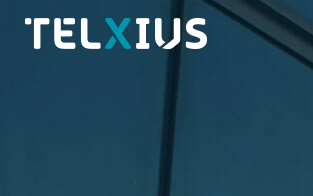Telefónica will sell a 9.99% equity stake in Telxius, its infrastructure arm, to Pontegadea for a total of 378.8 million euros. This transaction represents a price of 15.2 euro per share of Telxius.
Telefónica said the deal incorporates a long-term partner in a holding company that controls its infrastructure arm.
The sale has been structured via Telefónica’s subsidiary, Pontel Participaciones, which owns 60% of Telxius’ capital stock. Pontegadea owns 16.65% of Pontel and Telefónica the remaining 83.35%. After the transaction, Telefónica will maintain a majority stake and retain operational control of Telxius.
Telefónica's Telxius infrastructure arm expands its global reach
Telxius, Telefónica's infrastructure arm, was established in February 2016. It owns and operates a portfolio comprising nearly 16,300 telecom towers in five countries and manages an international network with around 65,000 km of submarine optical cable, including around 31,000 km owned by Telxius. The Telxius-owned network includes SAM-1 linking the U.S., Central and South America, PCCS (Pacific Caribbean Cable System) and Unisur, which connects Uruguay and Argentina. It also took over Telefónica's share in older subsea consortium cables, including Columbus III, Atlantis II, and FLAG.
Telxius has two new subsea cables that are expected to enter commercial service shortly: BRUSA, linking Brazil, Puerto Rico and the U.S., and MAREA linking the U.S. and Europe in partnership with Google and Facebook. The two projects bring enormous East-West and North-South capacity to the Atlantic. More about these projects below.
It was just over a year ago that Telefónica announced it has reached an agreement with global investment firm KKR Group for the sale of up to a 40% stake of Telxius Telecom, its global telecommunications infrastructure company, for a total of Euro 1,275 million, or Euro 12.75 per share. The deal with KKR implied an enterprise value of Euro 3,678 million for Telxius, or 11.4 times its 2017 EBITDA.
Telefónica's original plan was to seek a public listing for Telxius as an independent company. An attempted initial public offering was announced in September 2016 but subsequently withdrawn in November.
In terms of valuation, the deal with KKR was fairly close to the earlier aspirations for a public listing. KKR is a private equity firm specializing in infrastructure opportunities. As of the end of 2017, KKR had $168 billion of assets under its management.
From what we gather, the Telxius shared infrastructure business is doing well.
The Massive MAREA project
Construction of the highest-capacity subsea cable to cross the Atlantic was officially completed in September 2017. The 6,600 km MAREA subsea cable, which was jointly funded by Microsoft and Facebook, links Virginia Beach, Virginia to Bilbao, Spain. For these two Internet giants, the collaboration represents a significant change for the subsea cable industry, which previously funded major projects by establishing a consortium of telecom carriers, with bandwidth on the system subsequently divided between eight, ten or even more investing parties. MAREA is not only massive in comparison to the projects from just a decade ago, it also follows a more southerly transatlantic route, landing in Europe on the Iberian peninsula. For the American landing, the cable arrives hundreds of miles to the southern coast of Virginia, in proximity to new hyperscale data centre campuses being built by Microsoft and Facebook.
Telxius has two new subsea cables that are expected to enter commercial service shortly: BRUSA, linking Brazil, Puerto Rico and the U.S., and MAREA linking the U.S. and Europe in partnership with Google and Facebook. The two projects bring enormous East-West and North-South capacity to the Atlantic. More about these projects below.
It was just over a year ago that Telefónica announced it has reached an agreement with global investment firm KKR Group for the sale of up to a 40% stake of Telxius Telecom, its global telecommunications infrastructure company, for a total of Euro 1,275 million, or Euro 12.75 per share. The deal with KKR implied an enterprise value of Euro 3,678 million for Telxius, or 11.4 times its 2017 EBITDA.
Telefónica's original plan was to seek a public listing for Telxius as an independent company. An attempted initial public offering was announced in September 2016 but subsequently withdrawn in November.
In terms of valuation, the deal with KKR was fairly close to the earlier aspirations for a public listing. KKR is a private equity firm specializing in infrastructure opportunities. As of the end of 2017, KKR had $168 billion of assets under its management.
From what we gather, the Telxius shared infrastructure business is doing well.
The Massive MAREA project
Construction of the highest-capacity subsea cable to cross the Atlantic was officially completed in September 2017. The 6,600 km MAREA subsea cable, which was jointly funded by Microsoft and Facebook, links Virginia Beach, Virginia to Bilbao, Spain. For these two Internet giants, the collaboration represents a significant change for the subsea cable industry, which previously funded major projects by establishing a consortium of telecom carriers, with bandwidth on the system subsequently divided between eight, ten or even more investing parties. MAREA is not only massive in comparison to the projects from just a decade ago, it also follows a more southerly transatlantic route, landing in Europe on the Iberian peninsula. For the American landing, the cable arrives hundreds of miles to the southern coast of Virginia, in proximity to new hyperscale data centre campuses being built by Microsoft and Facebook.
See more: https://www.convergedigest.com/2018/03/telefonicas-telxius-infrastructure-arm.html










